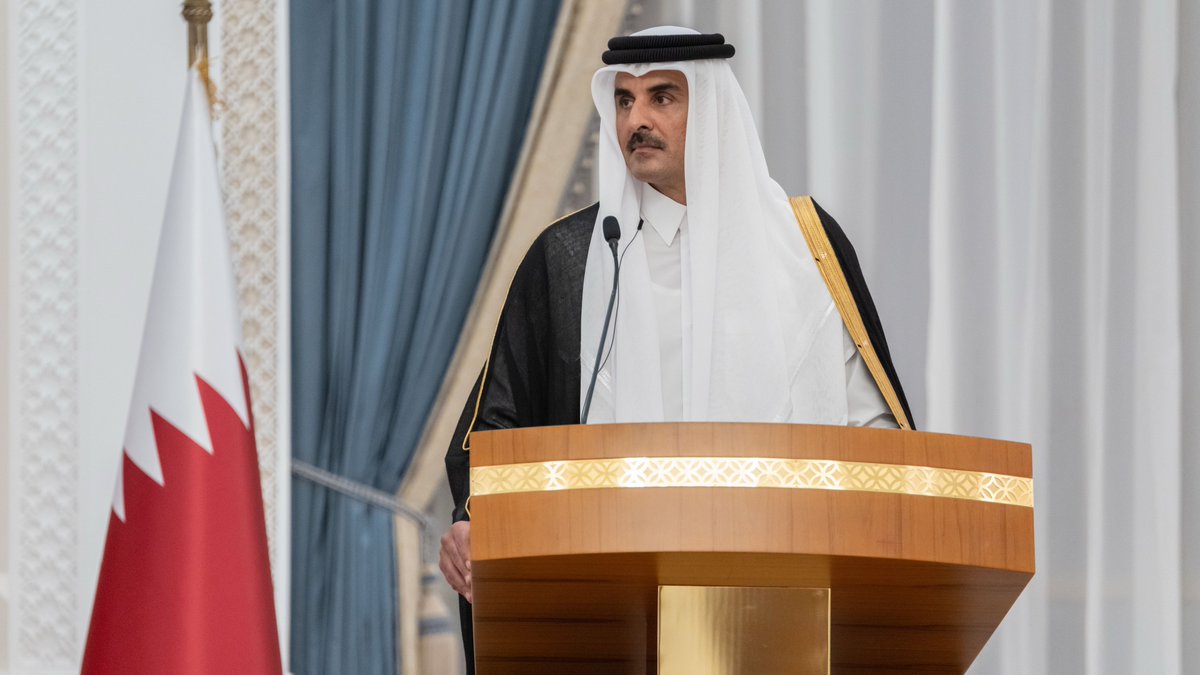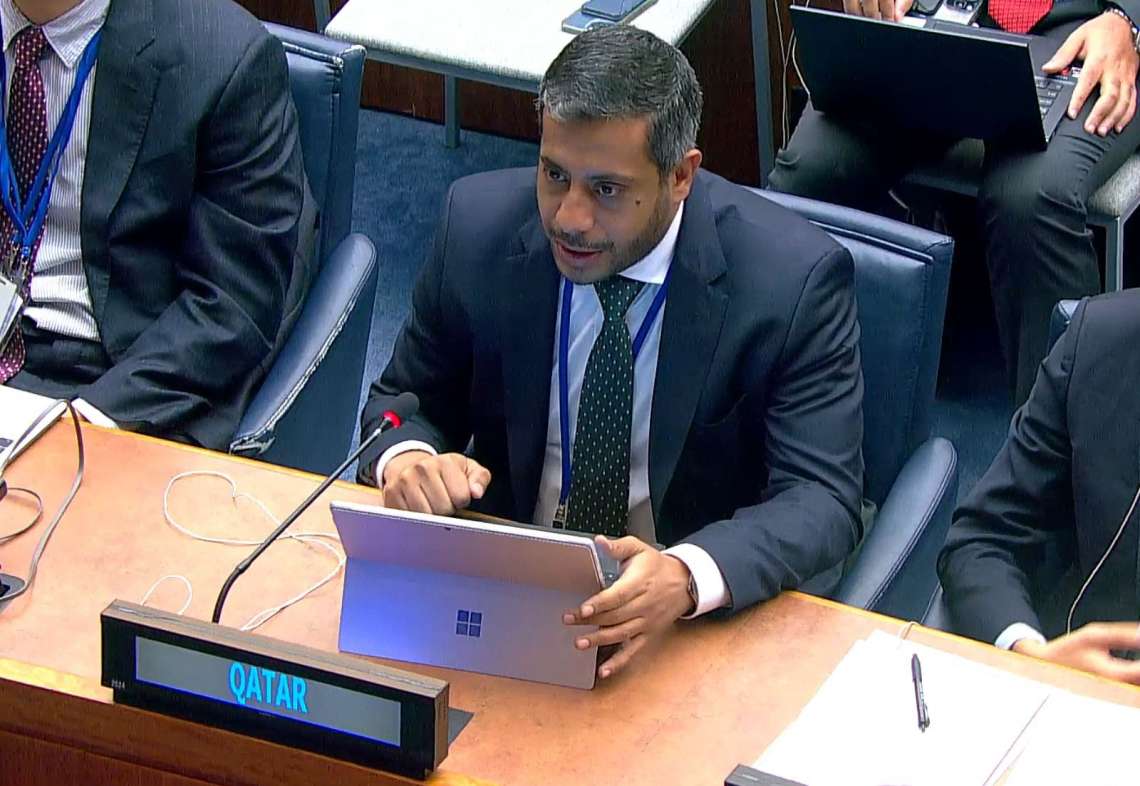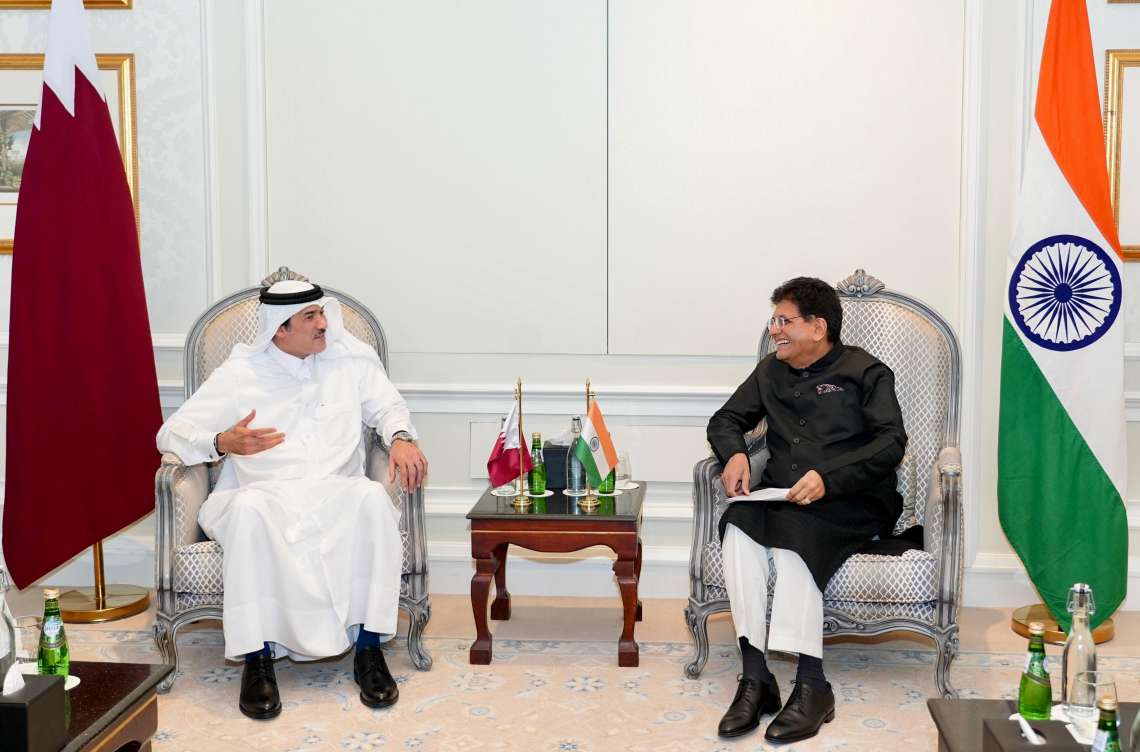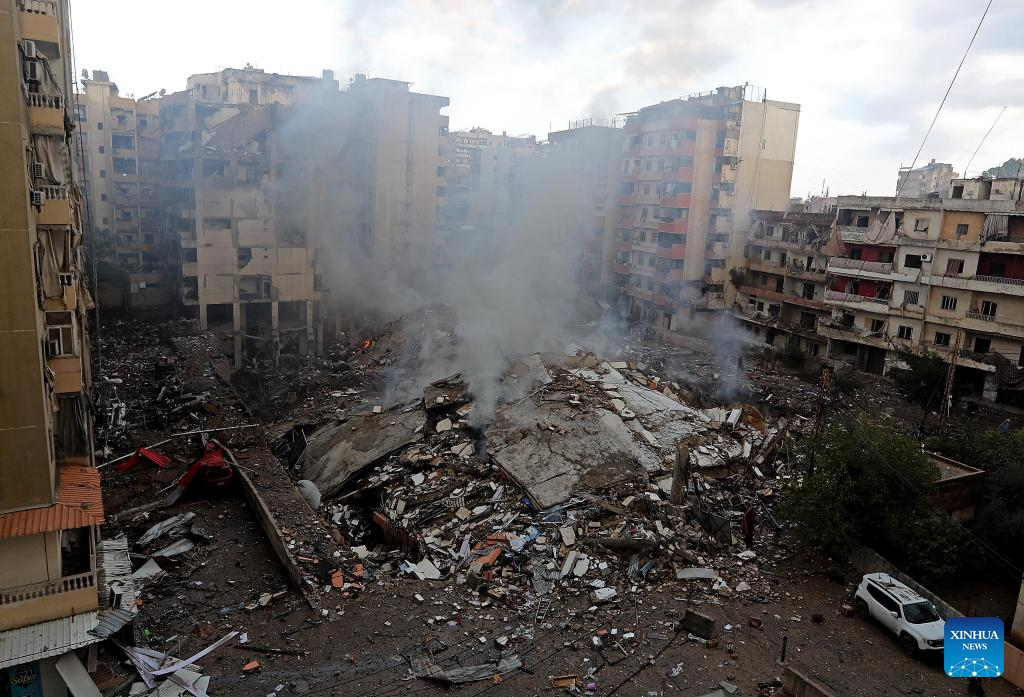Emir Sheikh Tamim bin Hamad Al-Thani emphasised that Qatar had long warned about Israel’s “impunity” in the region….reports Asian Lite News
Qatar’s Emir Sheikh Tamim bin Hamad Al-Thani, speaking at the Asia Cooperation Dialogue summit in Doha, referred to the ongoing Middle East crisis as a “collective genocide.”
He condemned the situation in Gaza, accusing Israel of turning the area into an uninhabitable zone, possibly to force displacement. The Emir emphasised that Qatar had long warned about Israel’s “impunity” in the region, Reuters reported.
He also criticised Israeli air strikes and military actions against Lebanon, calling them acts of aggression against a “brotherly nation.”
Israel has rejected accusations of genocide, pointing to its military response following a Hamas attack last year that killed 1,200 Israelis and led to the capture of over 250 hostages.
Since the conflict began, over 41,500 Gazans have been killed, according to health authorities in the Hamas-controlled Gaza Strip.
This week, Israeli forces also carried out ground operations against Hezbollah in Lebanon, in response to the Iran-backed group’s attacks, which Hezbollah claims are in solidarity with Palestinians.
Iran does not seek war: Pezeshkian
Iranian President Masoud Pezeshkian has said that Iran does not seek war, but will respond if Israel acts against the country.
Pezeshkian made the remarks here on Wednesday following his meeting with Qatari Emir Sheikh Tamim bin Hamad Al Thani during his official two-day visit, which aimed to strengthen bilateral ties and regional cooperation, Xinhua news agency reported.
According to Iranian media, before his departure, Pezeshkian stated: “We will pursue two goals in this trip. The first is to engage in dialogue with the Qatari government on cooperation agreements.”
Secondly, “we will address the critical regional situation, including Israel’s violations of international law and the targeting of innocent civilians,” Pezeshkian said. “If the Zionist regime does not stop its crimes, it will face harsher reactions.”
“Iran is not after war”, Pezeshkian said, stressing that it is Israel which forces Iran to react.
He explained that Iran showed restraint in order for peace to be restored following Israel’s assassination of Hamas political leader Ismail Haniyeh on July 31 in Tehran where he attended the inaugural of Pezeshkian a day earlier.
Instead of stopping the killing of people in Gaza and Lebanon, the Israeli regime intensified its attacks at the time when Iran showed restraint, President Pezeshkian said, stressing that the Islamic Republic was forced to respond.
He was referring to Iran’s firing of about 180 missiles at Israeli military and security positions on Tuesday (Oct. 1) in response to the assassinations of Haniyeh and Lebanon’s Hezbollah leader Sayyed Hassan Nasrallah who lost his life in an Israeli airstrike on Beirut on September 27.
If Israel wants to retaliate, Iran will give a more severe response, Pezeshkian said. “And that’s what the Islamic Republic is committed to.”
“The Zionist regime’s vicious goal is to create insecurity and expand crisis in the region, and we should prevent the crisis”, the Iranian president further said, asking the US and Europe to urge Israel to stop killing people and creating insecurity in the region.
Qatar’s Emir emphasized that his country supports de-escalating and protecting peace and security in the region.
Despite efforts by Qatar to de-escalate the situation, Israel has intensified its attacks, he said, urging the regime to stop its brutal war on Gaza, the occupied West Bank and Lebanon. He meanwhile stressed that Qatar will continue its mediation efforts aimed at ending the Gaza war and releasing Israeli captives held in the Palestinian territory.
Sheikh Tamim also called on the international community to help stop tensions in West Asia and urge Israel to halt its aggression against Gaza.
Airstrike continues in Beirut
Israel launched an airstrike early Thursday morning targeting the Health Authority Center affiliated with Hezbollah in the al-Bachoura area, central Beirut, causing a massive fire, local media reported.
TV footage showed heavy black smoke rising from the building.
The airstrike also led to significant damage to nearby houses and parked vehicles. Ambulances and civil defence teams have rushed to the area for rescue, Xinhua news agency reported.
According to Lebanon’s Ministry of Public Health, at least 5 people were killed in the airstrike in the al-Bachoura area.
Shortly before the strike in central Beirut, Israel launched three strong airstrikes on the Haret Hreik area in Beirut’s southern suburbs, Al Jadeed TV channel reported.
ALSO READ: Rights groups commend UAE for pardoning Bangladeshis













